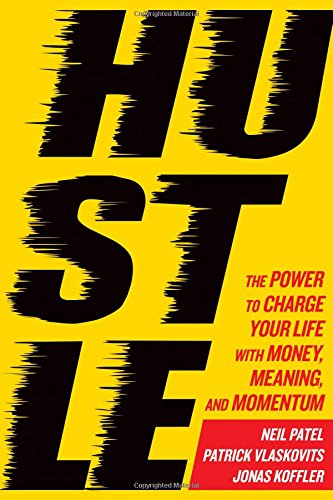
Since its inception in the human language, “hustle” has carried a distinct energy. It has meant different things to different people. The original term derived in the late 1600s from the middle Dutch word “hutselen,” a verb meaning to “shake things up.” But over the past few years, the word hustle has evolved from a dirty word meaning “to steal” or “to con” to an inspirational catchall verb meaning “to make something happen” or “to push forward in spite of the odds or obstacles in one’s way.”
This most recent drift in the word’s meaning is not accidental, nor is it trivial. This change portends big shifts in our culture, from the way we raise our children to the way we interact with the traditional socioeconomic institutions of the world—from the corporations that employ us to the entrepreneurial forces that compel us to create new companies to the governments that regulate us and the educational system that teaches us.
But the current rate of economic and cultural change we are experiencing right now is unprecedented, and hustle demands a new definition.
We define hustle as:
Decisive movement toward a goal, however indirect, by which the motion itself manufactures luck, surfaces hidden opportunities, and charges our lives with more money, meaning, and momentum.
Hustle’s redefined meaning not only captures its essence in a useful manner, but also acts as an unmistakable expression of today’s zeitgeist, a strategy for benefiting from a fast-moving and uncertain world, one in which globalization and the prospect of ravenous software eating the world (and our jobs) impact our family’s lives and our careers in real time.
In the face of such volatility, we seek agency, a way to exert our power and presence and find a place of permanence; we seek a way to achieve more self-direction, confidence, and a well of opportunity to sustain us.
Hustle is how we use our idiosyncrasies to find our unique means and our own personal successes.
Discovering our own way forward, not blindly aping the success of others, is the truest way forward. Hustle is the most important tool of the New American Dream, in which we reassert power and control over the system by owning our dreams. To fully own your dreams, you need three fundamental pillars: money, meaning, and momentum. And these pillars are the gifts which hustle bestows upon you.
There are three unseen laws of hustle: 1) Do something that moves you. 2) Keep your head up and look for opportunity. 3) Seal the deal and make it real.
The first step is to find the heart of your true talents by taking the time and effort to allow them to come to the surface. Despite our best intentions, our talents often remain buried and elusive, hidden underneath the shoulds, maybes and wishes of our rented dreams. The best thing we can do to remedy this tragic waste of potential is to expose ourselves to challenging projects and environments in our work and life and to focus on the unexpected strengths that will rise to the surface when we do so.
The second step is to realize in small doses, stress actually helps us grow our future skills and knowledge and helps us anticipate and solve complex challenges. Once you have accepted that small amounts of pain are actually the greatest agents for growth, you can begin to think about your future more boldly. Have a great but somewhat risky idea that has terrific potential but isn’t a 100% sure thing? It turns out, it’s not the number of hits or home runs we get that matters; we can instead manifest our success by simply stepping up to the plate more often.
The third step is to develop your own Personal Opportunity Portfolio, a guiding plan for organizing and making sense of all your hustle efforts and following through to achieve your goals.
As we move along our journey, there will, of course, be bumps along the way. Sometimes we will fail and need to regroup. Sometimes a plan will have unintended outcomes that you need to step back and make sense of. The indirect nature of hustle makes each individual journey significant. And doing the wrong thing (falling in love with the wrong type of person, taking a job for the wrong reasons, trying to become someone you are incapable of becoming) is often a necessary step toward finding that right thing.
There are multiple approaches to getting ahead and moving forward in your work or career plan, and all of them will be enhanced once you have learned how to hustle.
Reprinted from Hustle by Neil Patel, Patrick Vlaskovits, and Jonas Koffler. Copyright © 2016. By permission of Rodale Books. Available wherever books are sold.
More Must-Reads from TIME
- Donald Trump Is TIME's 2024 Person of the Year
- TIME’s Top 10 Photos of 2024
- Why Gen Z Is Drinking Less
- The Best Movies About Cooking
- Why Is Anxiety Worse at Night?
- A Head-to-Toe Guide to Treating Dry Skin
- Why Street Cats Are Taking Over Urban Neighborhoods
- Column: Jimmy Carter’s Global Legacy Was Moral Clarity
Contact us at letters@time.com